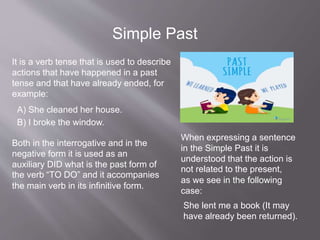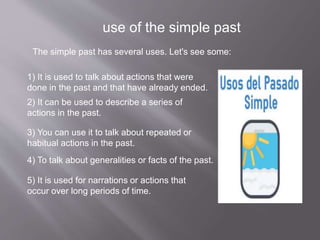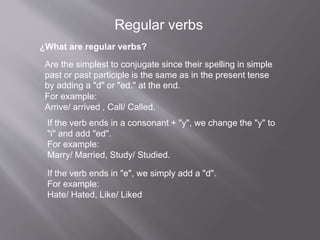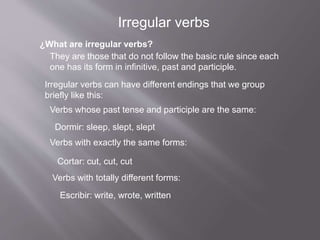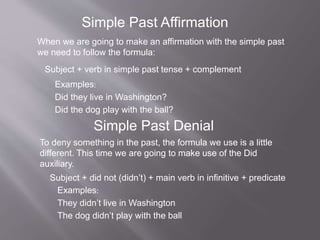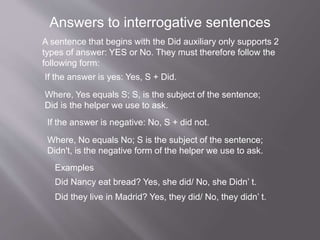This document discusses the simple past tense in English. It provides examples of how to form the simple past of regular and irregular verbs. It also outlines the rules for forming affirmative, negative, and interrogative sentences in the simple past. Specifically, it explains that the simple past is used to describe completed actions in the past and involves using the past tense form of verbs. It also notes the use of the auxiliary "did" in interrogative and negative constructions.

